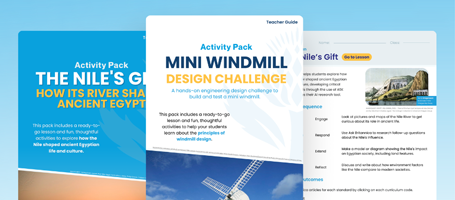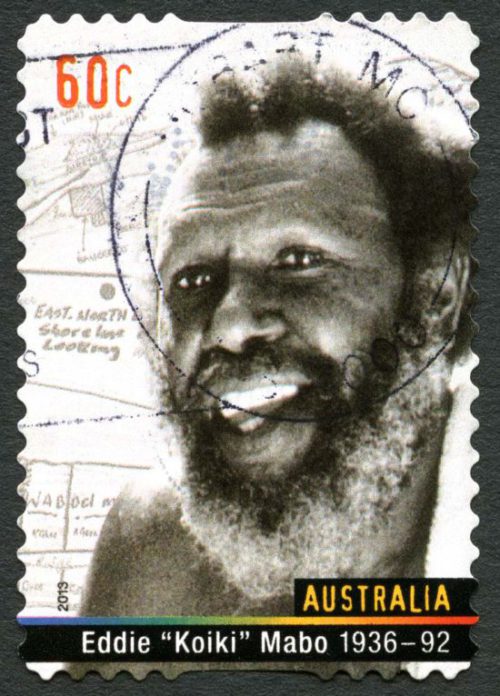National Reconciliation Week in Australia ends on June 3rd every year, a date purposefully chosen to commemorate an important milestone in the continuing journey towards reconciliation: the High Court Mabo Decision.
The curriculum-aligned activity sets in this article are created to supplement resources from Britannica School. They can be used as a basis for lessons or events around National Reconciliation Week and Mabo Day. Contact your librarian to find out if your institution already has access to Britannica School or claim your own free trial.
Please note: Aboriginal and Torres Strait Islander People should be aware that this website may contain images, voices or names of deceased persons in photographs, film, audio recordings or printed material.
Unit Title
Reconciliation Week – The Mabo Decision
Years
7-10
Key Learning Areas
History, Humanities and Social Sciences (HASS)
Curriculum Links
Australian Curriculum
• Year 8 Civics and Citizenship
| Code | Elaborations | |
|---|---|---|
| ACHCK066 | Different perspectives about Australia’s national identity, including Aboriginal and Torres Strait Islander perspectives, and what it means to be Australian | Examining contemporary influences on the shaping of Australian national identity, such as the natural environment, immigration, attitudes to Asia and Reconciliation between Aboriginal and Torres Strait Islander Peoples and other Australians |
• Year 10 History
| Code | Elaborations | |
|---|---|---|
| ACDSEH106 | The significance of the following for the civil rights of Aboriginal and Torres Strait Islander Peoples: 1962 right to vote federally; 1967 Referendum; Reconciliation; Mabo decision; Bringing Them Home Report (the Stolen Generations), the Apology | Describing the aims, tactics and outcomes of a particular event in the Aboriginal and Torres Strait Islander Peoples’ struggle for rights and freedoms |
NSW Curriculum
| Code | |
|---|---|
| HT5-3 | Explains and analyses the motives and actions of past individuals and groups in the historical contexts that shaped the modern world and Australia |
| HT5-4 | Explains and analyses the causes and effects of events and developments in the modern world and Australia |
VIC Curriculum
History/Level 9 and 10/Historical Knowledge/The Modern World and Australia/Rights and freedoms (1945 – The Present)
| Code | Elaborations | |
|---|---|---|
| VCHHK154 | Significance of the following events in changing society: 1962 right to vote federally, 1967 Referendum, Reconciliation, Mabo decision, Bringing Them Home Report (the Stolen Generations), the Apology and the different perspectives of these events. | Describing the aims, tactics and outcomes of a particular event in the Aboriginal and Torres Strait Islander peoples’ struggle for rights and freedoms. |
Assessment:
- Various work samples based on tasks completed e.g. Biography, Recognition Display, Comic Strip
- Observation of students as they research and work through the task elements
- Observation of discussions
Resources:
- Internet access
- Device
Introduction:
Torres Strait Islander activist Eddie Mabo spearheaded the fight for land rights for Indigenous Peoples in Australia in the late 20th century.
In 1982 he brought what became known as “the Mabo case” before the Australian High Court, successfully challenging the then-existing law that prevented Aboriginal and Torres Strait Islander Peoples from legally owning land that they had held since before European colonisation.
Teaching Strategies / Learning Experiences:
The following resources and activity sets can be expanded into lesson plans, distributed as guided study resources or used to frame further group discussions. Supporting media can be displayed on an interactive whiteboard or projector to encourage collaboration in a classroom environment.
Activity: Who was Eddie Mabo?
Referring to the Britannica School article on Eddie Mabo, create a biography for one of Australia’s best known Torres Strait Islander activists.
Activity: Mabo v. Queensland (No. 2)
Mabo Day (June 3rd) recognises a decision handed down by the High Court of Australia that acknowledged the land rights of Aboriginal and Torres Strait Islander Peoples. The day is named after the activist Eddie Mabo.
Watch the following videos. Use the information presented to explain the Mabo case and its importance in the fight for the rights of Aboriginal and Torres Strait Islander People.
Eddie Mabo: Mabo Day
Mabo – Life of an Island Man
Students are to present a summary of their research in a 2-5 min presentation.
Activity: Pemulwuy
Pemulwuy was one of the earliest Australian Aboriginal warriors to lead a resistance against European settlers and colonisation. Explore his extraordinary life and story by reading the Britannica School article Pemulwuy and watching the documentary Pemulwuy: A War of Two Laws (2010).
How alike or different was Pemulwuy to Eddie Mabo? Compare and contrast the two historical figures and their contribution to Indigenous history and culture.
Activity: Recognition Display
As a group, discuss the word “recognition.” What does it mean?
Ask students to finish the statement “Recognition means…” using words, visuals, art, poetry, story, videos, music or any other medium of their choosing. Create a class display portraying a collection of students’ ideas.
Activity: Reconciliation Book Club
Examine the following text in a “Book Club” scenario to gain an insight into different perspectives on reconciliation and the events that underpin Aboriginal and Torres Strait Islander histories and cultures.
Examine the document United Nations Declaration on the Rights of Indigenous Peoples, accessible from the UN website.
Discuss the following questions in an online forum or in class:
- What is the Declaration on the Rights of Indigenous Peoples?
- What rights does the Declaration contain?
- Does the Declaration create new rights for Indigenous Peoples? If not, what is the purpose of the Declaration?
- Does the UN Declaration help repair the relationship between Indigenous Peoples and settlers? Explain your perspective.
- What did you learn about Aboriginal and Torres Strait Islander cultures, histories or Peoples?
- How do you think the declaration could start a dialogue around Reconciliation?
Activity: The Importance of Reconciliation
Ask students to write a letter to PM, newspaper or local MP explaining their thoughts on reconciliation, its importance and advocating for the need to come together.
Activity: NEOMAD
Watch the NEOMAD series, a live action comic series that explores the story of Love Punks, a group of tech savvy young heroes and their adventures as they learn about their culture from the Murujuga Rangers.
NEOMAD is an example of how thousands of years of Aboriginal cultural heritage is being re-interpreted using contemporary tools and mediums.
Extension
Students create their own comic strip or video illustrating something significant from their lives and culture.
More Educator Resources
Sign up with your email for more free resources from Britannica.
These activities and resources have been created using content from Britannica School, the go-to site for safe, comprehensive student research. Contact your librarian to find out if your institution already has access. Find out more about Britannica School or set up your own free trial.

